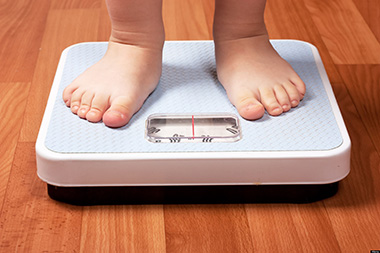Childhood Obesity Study Bias
Study Finds Parenting and Children’s Health Research Underrepresents Fathers
 |
|
Researchers at UAlbany and Harvard claim childhood obesity research mostly targets mothers. (Photo courtesy of Huffington Post)
|
ALBANY, N.Y. (October 19, 2016) – Obesity has more than doubled in children and quadrupled in adolescents over the past 30 years, according to the Centers for Disease Control and Prevention (CDC). The rising numbers leave our younger generation’s health and overall well-being at risk.
Experts will tell us parents play a key role in establishing healthy diet and exercise habits for their children. However, according to a new study, their research is disproportionally targeted at mothers.
The study, led by Kirsten Davison, Harvard T.H. Chan School of Public Health, in collaboration with Jennifer Manganello, an associate professor at the University at Albany School of Public Health, analyzed 667 observational studies on parenting and childhood obesity to reach its conclusion.
While more than 300 studies included at least one father, only 57 reported their results separately from mothers. Overall, just 1 percent of studies included only fathers, while 36 percent included only mothers. The average sample size also favored mothers, 672 to 139.
Additionally, studies that did include fathers tended to focus less on diet and more on physical activities. Those studies were also less likely to include families of low socioeconomic status and/or from minority groups, and significantly favored school-aged children, not infants or preschool-age.
“We have known for a while that many studies of children’s health, including those focusing on obesity, have traditionally focused on mothers,” Manganello said. “We thought this study was important to actually put real numbers to the issue and help quantify the extent of the problem.”
Manganello believes the team’s findings shows parenting and child health research is not keeping up with demographic shifts. Among fathers with a wife in the workforce, 32 percent are a regular source of care for their children under age 15. That’s up from 26 percent in 2002, according to the U.S. Census Bureau.
“Researchers will often say they try to recruit fathers but find it hard to get them to participate,” Manganello said. “We need to come up with new ideas and strategies to reach and enroll them into all types of research involving children. Their input ensures we are getting the perspective needed to design interventions that will be relevant to all parents.”
The team’s full study has been published in the American Public Health Association’s November 2016 edition. It was also featured on the Harvard School of Public Health website.
Want to learn more about Manganello’s research? Visit her University expert page or follow her on Twitter @healthcommphd.
![]() For more news, subscribe to UAlbany's RSS headline feeds
For more news, subscribe to UAlbany's RSS headline feeds
A comprehensive public research university, the University at Albany-SUNY offers more than 120 undergraduate majors and minors and 125 master's, doctoral and graduate certificate programs. UAlbany is a leader among all New York State colleges and universities in such diverse fields as atmospheric and environmental sciences, business, education, public health,health sciences, criminal justice, emergency preparedness, engineering and applied sciences, informatics, public administration, social welfare and sociology, taught by an extensive roster of faculty experts. It also offers expanded academic and research opportunities for students through an affiliation with Albany Law School. With a curriculum enhanced by 600 study-abroad opportunities, UAlbany launches great careers.


